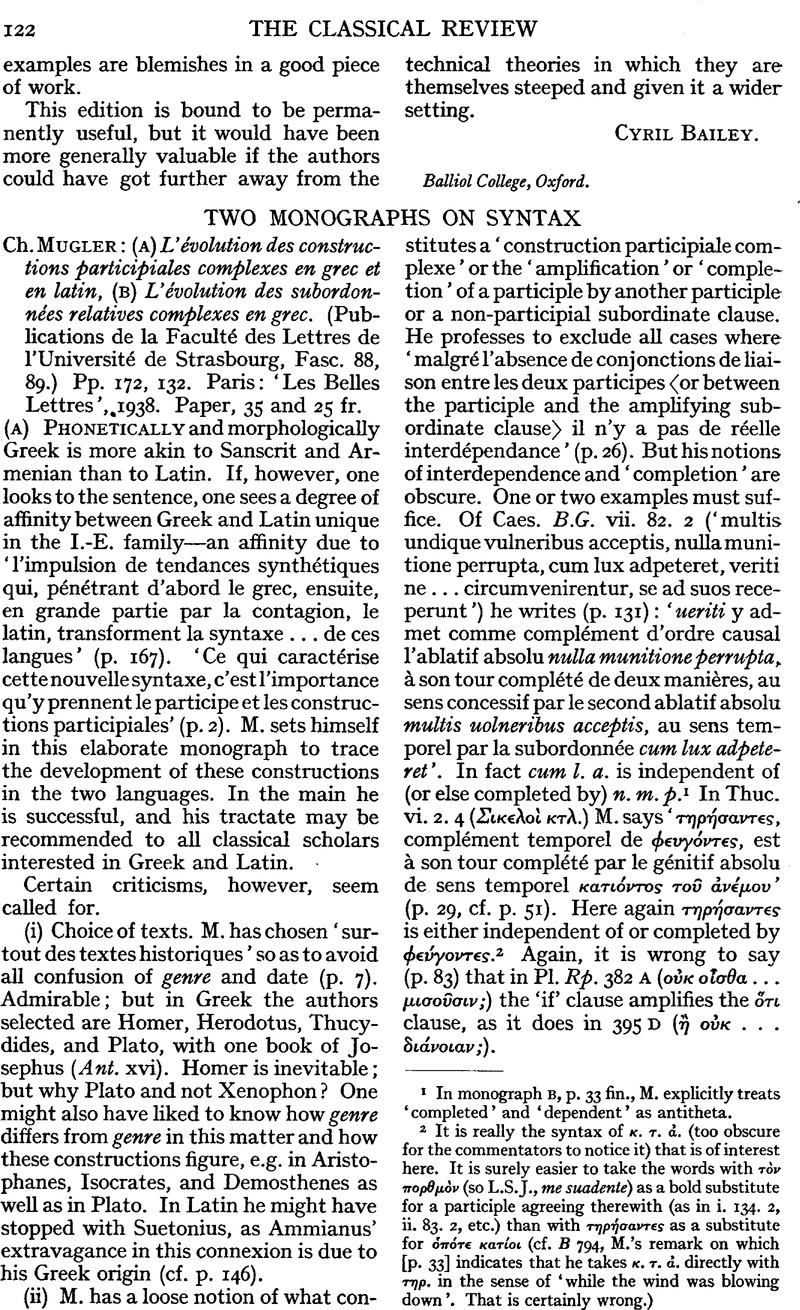No CrossRef data available.
Article contents
Two Monographs on Syntax - Ch. Mugler: (A) L'èvolution des constructions participiales complexes en grec et en latin, (B) L'èvolution des subordonnèes relatives complexes en grec. (Publicationsde la Facultè des Lettres de l'Universitè de Strasbourg, Fasc. 88, 89.) Pp. 172, 132. Paris: ‘Les Belles Lettres ’,1938. Paper, 35 and 25 fr.
Published online by Cambridge University Press: 27 October 2009
Abstract

- Type
- Reviews
- Information
- Copyright
- Copyright © The Classical Association 1942
References
page 122 note 1 In monograph B, p. 33 fin., M. explicitly treats ‘completed’ and ‘dependent’ as antitheta.
page 122 note 2 It is really the syntax of κ.τ.á. (too obscure for the commentators to notice it) that is of interest here. It is surely easier to take the words with τ⋯ν πορθμ⋯ν(so L.S. J., me suadente) as a bold substitute for a participle agreeing therewith (as in i. 134. 2, ii. 83. 2, etc.) than with τηρ⋯σαντɛσ as a substitute for ⋯π⋯τɛ κατ⋯οι (cf. B 794, M.'s remark on which [p. 33] indicates that he takes κ.τ.á. directly with τμρ. in the sense of ‘while the wind was blowing down’. That is certainly wrong.)
page 123 note 1 The quasi-theological argument with which he seeks to make Hdt. ii. 13.1 (Μο⋯ρι κτλ.)sufficient by itself to establish his case (R.E.G., p. 39) is demolished by Hdt. ix. 74.1 (ΣωΦ⋯νης…ἓχɛι)etc.


